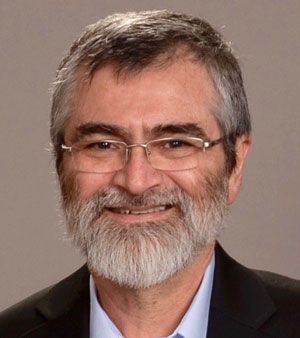Luis A. Cólon Receives the Chromatography Forum of Delaware Valley Dal Nogare Award
Luis A. Cólon

Luis A. Cólon, the A. Conger Goodyear Professor of chemistry at the University at Buffalo (SUNY), is the recipient of the 2022 Chromatography Forum of Delaware Valley Dal Nogare Award. The award recognizes contributions to the theory and application of chromatographic science. Awardees are selected based on their contributions to the fundamental understanding of the chromatographic process. A virtual presentation of the Dal Nogare Award, introduced by Mary Ellen McNally, will take place on Monday, May 2, at 1:00 pm EST as part of the Pittcon 2022 virtual program.
In his award presentation, Cólon will give a talk titled “Chromatographic Media for Liquid Phase Separations.” He will discuss the evolution of the separation science that has resulted from the contributions of researchers who have helped to create the fundamental and cumulative knowledge on which chromatography continues to be built, including the development and study of new separation media for liquid chromatography, which relies on material chemistry to provide stable and affordable chromatographic phases.
Colon’s current research focuses on the development and study of materials for use in separation science and chemical analysis, with particular attention to chromatographic media for liquid phase separations and the development of new strategies to separate and analyze complex chemical or biochemical sample mixtures. He also works on issues that advance diversity in graduate education, and has mentored over 50 graduate students.
Colón has received many awards for his work, including the NSF Special Creativity Award, the Benedetti-Pichler Award from the Microchemical Society, the Jacob F. Schoellkopf Medal (ACS-WNY) and the Eastern Analytical Symposium (EAS) Outstanding Achievements in Separation Science Award. He is Fellow of the American Chemical Society (ACS), the American Association for the Advancement of Sciences (AAAS), and the Royal Society of Chemistry (RSC). Other distinctions include the AAAS Mentor Award, ACS Award for Encouraging Disadvantaged Students into Careers in the Chemical Sciences, the ACS Stanley C. Israel Award, and the USA Presidential Award for Excellence in Science, Mathematics, and Engineering Mentoring.
To register for this session, go to:
https://us06web.zoom.us/webinar/register/WN_HLmcG_CmSQOzEDJCs89JtQ
Evaluating the Accuracy of Mass Spectrometry Spectral Databases
May 12th 2025Mass spectrometry (MS) can be effective in identifying unknown compounds, though this can be complicated if spectra is outside of known databases. Researchers aimed to test MS databases using electron–ionization (EI)–MS.

.png&w=3840&q=75)

.png&w=3840&q=75)



.png&w=3840&q=75)



.png&w=3840&q=75)




